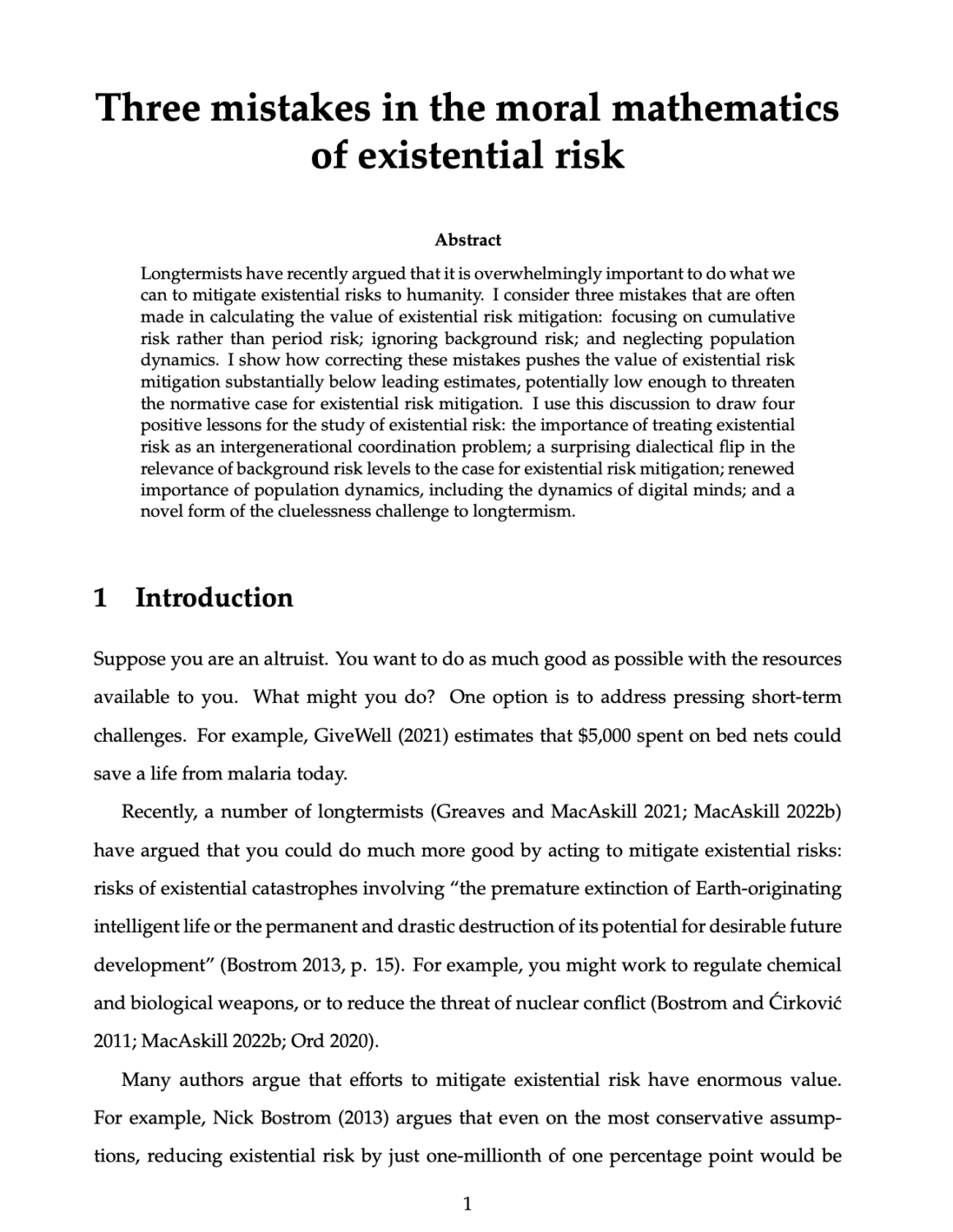Three mistakes in the moral mathematics of existential risk
David Thorstad (Global Priorities Institute, University of Oxford)
GPI Working Paper No. 7-2023, forthcoming in Ethics
Longtermists have recently argued that it is overwhelmingly important to do what we can to mitigate existential risks to humanity. I consider three mistakes that are often made in calculating the value of existential risk mitigation: focusing on cumulative risk rather than period risk; ignoring background risk; and neglecting population dynamics. I show how correcting these mistakes pushes the value of existential risk mitigation substantially below leading estimates, potentially low enough to threaten the normative case for existential risk mitigation. I use this discussion to draw four positive lessons for the study of existential risk: the importance of treating existential risk as an intergenerational coordination problem; a surprising dialectical flip in the relevance of background risk levels to the case for existential risk mitigation; renewed importance of population dynamics, including the dynamics of digital minds; and a novel form of the cluelessness challenge to longtermism.
Other working papers
Intergenerational equity under catastrophic climate change – Aurélie Méjean (CNRS, Paris), Antonin Pottier (EHESS, CIRED, Paris), Stéphane Zuber (CNRS, Paris) and Marc Fleurbaey (CNRS, Paris School of Economics)
Climate change raises the issue of intergenerational equity. As climate change threatens irreversible and dangerous impacts, possibly leading to extinction, the most relevant trade-off may not be between present and future consumption, but between present consumption and the mere existence of future generations. To investigate this trade-off, we build an integrated assessment model that explicitly accounts for the risk of extinction of future generations…
Doomsday and objective chance – Teruji Thomas (Global Priorities Institute, Oxford University)
Lewis’s Principal Principle says that one should usually align one’s credences with the known chances. In this paper I develop a version of the Principal Principle that deals well with some exceptional cases related to the distinction between metaphysical and epistemic modality. I explain how this principle gives a unified account of the Sleeping Beauty problem and chance-based principles of anthropic reasoning…
Existential Risk and Growth – Philip Trammell (Global Priorities Institute and Department of Economics, University of Oxford) and Leopold Aschenbrenner
Technologies may pose existential risks to civilization. Though accelerating technological development may increase the risk of anthropogenic existential catastrophe per period in the short run, two considerations suggest that a sector-neutral acceleration decreases the risk that such a catastrophe ever occurs. First, acceleration decreases the time spent at each technology level. Second, since a richer society is willing to sacrifice more for safety, optimal policy can yield an “existential risk Kuznets curve”; acceleration…

